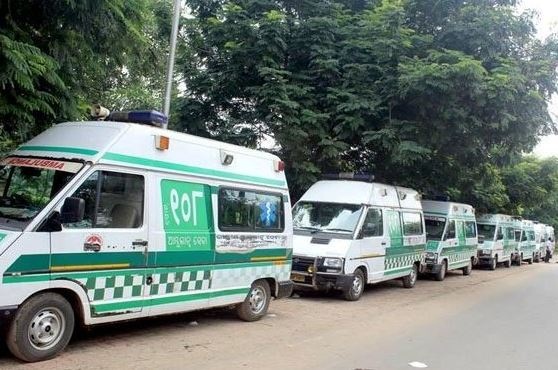Nabarangpur: The Centre and the Odisha government are trying their best to make healthcare accessible to all, but lack of motorable roads in parts of Nabarangpur district has affected the service. Sources said that ambulance services are not available in 165 villages of Nabarangpur district due to lack of a proper road. This has happened due to negligent and apathetic attitude of the district administration and public representatives.
Out of the affected villages, only 77 have fair weather roads. Many villages are surrounded by rivers and streams and get cut off from the rest of the world during the rainy season due to lack of bridges on the water bodies. The spreading of waterborne diseases like diarrhoea in many remote pockets of the district is a prime example of the lack of healthcare facilities due to the absence of a proper road. Healthcare professionals are ready to treat patients suffering from various diseases, but the lack of a proper motorable road prevents them from doing so. The sorry state of affairs was recently witnessed at Tulasipadar village under Papadahandi block where diarrhoea claimed one life and 20 others were severely infected. The disease wreaked havoc as it is very difficult to reach the village.
Sources said that one has to take National Highway-26 and travel for 1.5 km on a makeshift mud road and then cross a river to reach Tulasipadar village. The water level in the river has increased due to heavy rainfall lashing the district since Sunday following low pressure making it very difficult to cross it. A medical team comprising doctors Jyotshnarani Das, Bibhuti Bhushan Nayak, Itishree Palai and pharmacists and health workers rushed Sunday and tried to reach Tulasipadar village, but were left stranded near the bank of the river due to swelling water level. With no chance to cross the river, the medical team then used a microphone to address the villagers who had gathered on the other side. They also put medicines in polythene packs and hurled them to the other side of the river where villagers managed to collect those.
Villagers alleged that despite repeated pleas the district administration is not serious enough to construct a bridge on the river or a road to their village. Reports said that over 26 persons were similarly affected by diarrhoea in Tulasipadar village in 2010. The Tulasipadar village is amid a forest and without accessible road. The village remains waterlogged during the rainy season and the villagers survives on whatever food they have in their homes.

